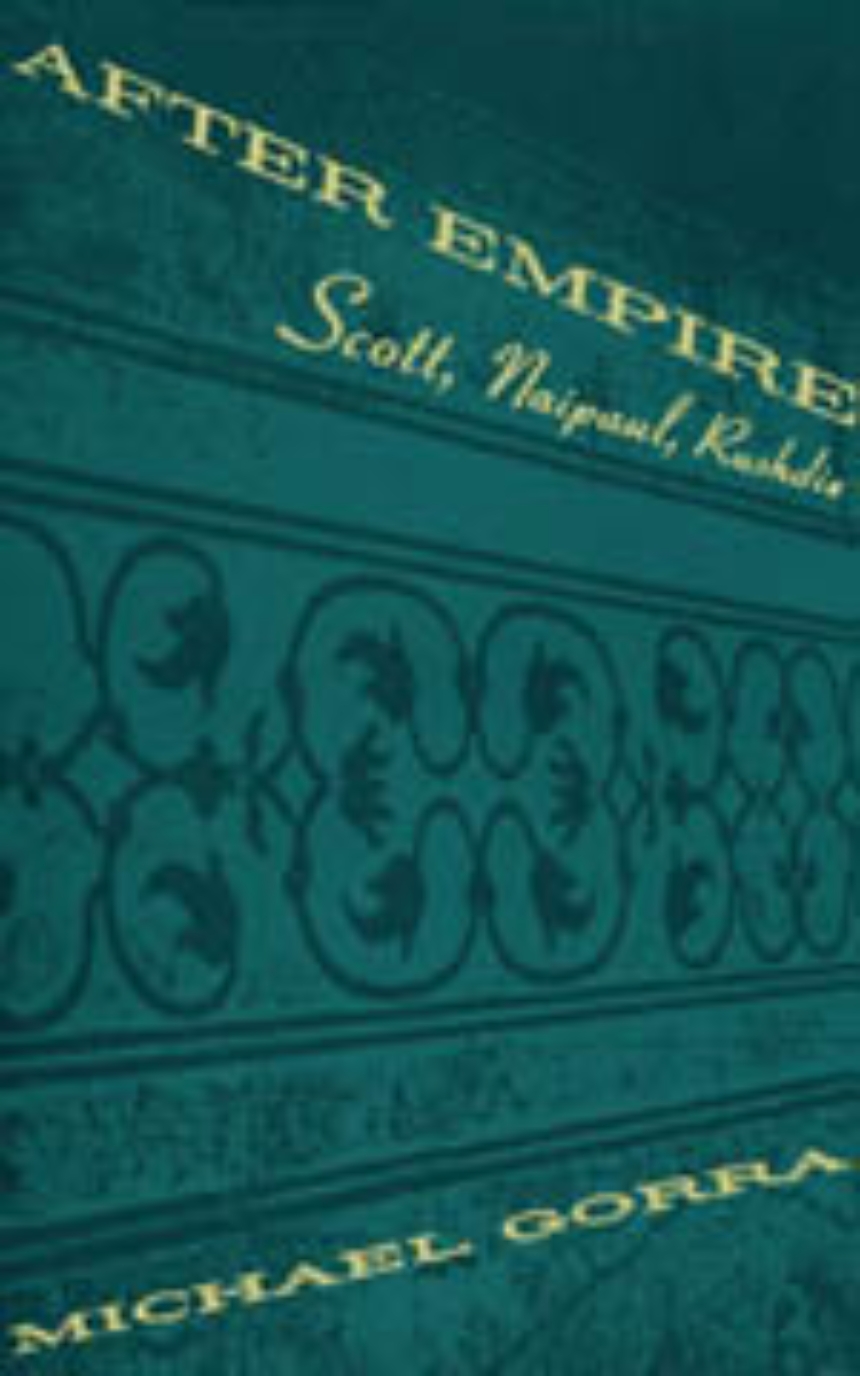After Empire
Scott, Naipaul, Rushdie
In After Empire Michael Gorra explores how three novelists of empire—Paul Scott, V. S. Naipaul, and Salman Rushdie—have charted the perpetually drawn and perpetually blurred boundaries of identity left in the wake of British imperialism.
Arguing against a model of cultural identity based on race, Gorra begins with Scott’s portrait, in The Raj Quartet, of the character Hari Kumar—a seeming oxymoron, an "English boy with a dark brown skin," whose very existence undercuts the belief in an absolute distinction between England and India. He then turns to the opposed figures of Naipaul and Rushdie, the two great novelists of the Indian diaspora. Whereas Naipaul’s long and controversial career maps the "deep disorder" spread by both imperialism and its passing, Rushdie demonstrates that certain consequences of that disorder, such as migrancy and mimicry, have themselves become creative forces.
After Empire provides engaging and enlightening readings of postcolonial fiction, showing how imperialism helped shape British national identity—and how, after the end of empire, that identity must now be reconfigured.
Arguing against a model of cultural identity based on race, Gorra begins with Scott’s portrait, in The Raj Quartet, of the character Hari Kumar—a seeming oxymoron, an "English boy with a dark brown skin," whose very existence undercuts the belief in an absolute distinction between England and India. He then turns to the opposed figures of Naipaul and Rushdie, the two great novelists of the Indian diaspora. Whereas Naipaul’s long and controversial career maps the "deep disorder" spread by both imperialism and its passing, Rushdie demonstrates that certain consequences of that disorder, such as migrancy and mimicry, have themselves become creative forces.
After Empire provides engaging and enlightening readings of postcolonial fiction, showing how imperialism helped shape British national identity—and how, after the end of empire, that identity must now be reconfigured.
218 pages | 5-1/2 x 8-1/2 | © 1997
Asian Studies: South Asia
Literature and Literary Criticism: Asian Languages, British and Irish Literature
Table of Contents
Introduction
After Empire
1. The Situation: Paul Scott and The Raj Quartet
2. V. S. Naipaul: In His Father’s House
3. The Novel in an Age of Ideology: On the Form of Midnight’s Children
Appendix to Chapter 3: "Burn the Books and Trust the Book": The Satanic Verses, February 1989
Conclusion
Notes towards a Redefinition of Englishness
Notes
Index
After Empire
1. The Situation: Paul Scott and The Raj Quartet
2. V. S. Naipaul: In His Father’s House
3. The Novel in an Age of Ideology: On the Form of Midnight’s Children
Appendix to Chapter 3: "Burn the Books and Trust the Book": The Satanic Verses, February 1989
Conclusion
Notes towards a Redefinition of Englishness
Notes
Index
